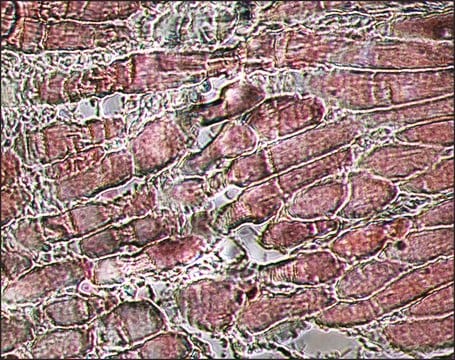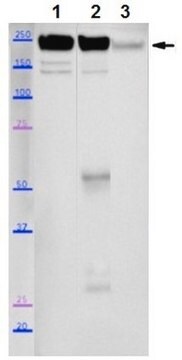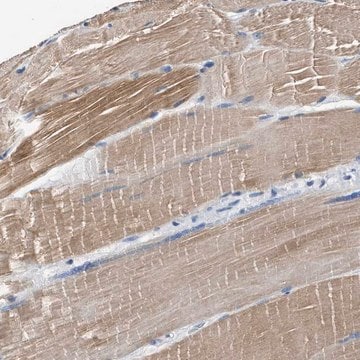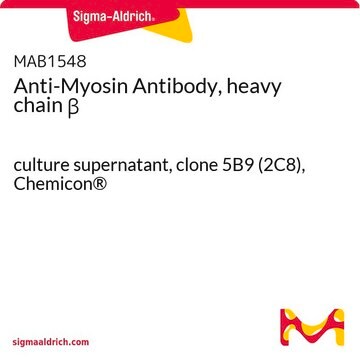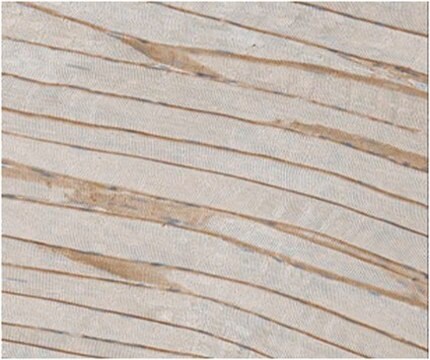M1570
Anti-MYH-1 Antibody

mouse monoclonal, MY-32
Sinônimo(s):
Monoclonal Anti-Myosin (Skeletal, Fast) antibody produced in mouse
Selecione um tamanho
R$ 1.358,00
Previsão de entrega em02 de junho de 2025
Selecione um tamanho
About This Item
R$ 1.358,00
Previsão de entrega em02 de junho de 2025
Produtos recomendados
Nome do produto
Anti-Myosin (Skeletal, Fast) antibody, Mouse monoclonal, clone MY-32, purified from hybridoma cell culture
fonte biológica
mouse
Nível de qualidade
conjugado
unconjugated
forma do anticorpo
purified immunoglobulin
tipo de produto de anticorpo
primary antibodies
clone
MY-32, monoclonal
Formulário
buffered aqueous solution
reatividade de espécies
rat, chicken, rabbit, mouse, human, bovine, guinea pig, feline
embalagem
antibody small pack of 25 μL
validação aprimorada
independent
Learn more about Antibody Enhanced Validation
concentração
~1.0 mg/mL
técnica(s)
immunohistochemistry (formalin-fixed, paraffin-embedded sections): 10-20 μg/mL using porcine tongue
microarray: suitable
western blot: 0.5-1.0 μg/mL using total extract of rabbit skeletal muscle
Isotipo
IgG1
nº de adesão UniProt
Condições de expedição
dry ice
temperatura de armazenamento
−20°C
modificação pós-traducional do alvo
unmodified
Informações sobre genes
human ... MYH1(4619) , MYH2(4620)
mouse ... Myh1(17879) , Myh2(17882)
rat ... Myh1(287408) , Myh2(691644)
Procurando produtos similares? Visita Guia de comparação de produtos
Categorias relacionadas
Descrição geral
Imunogênio
Aplicação
Immunohistochemistry (1 paper)
forma física
Exoneração de responsabilidade
Não está encontrando o produto certo?
Experimente o nosso Ferramenta de seleção de produtos.
produto relacionado
recomendado
Código de classe de armazenamento
10 - Combustible liquids
Classe de risco de água (WGK)
WGK 1
Escolha uma das versões mais recentes:
Certificados de análise (COA)
Não está vendo a versão correta?
Se precisar de uma versão específica, você pode procurar um certificado específico pelo número do lote ou da remessa.
Já possui este produto?
Encontre a documentação dos produtos que você adquiriu recentemente na biblioteca de documentos.
Os clientes também visualizaram
Active Filters
Nossa equipe de cientistas tem experiência em todas as áreas de pesquisa, incluindo Life Sciences, ciência de materiais, síntese química, cromatografia, química analítica e muitas outras.
Entre em contato com a assistência técnica


